Filter by
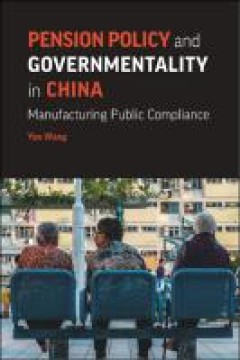
Pension Policy and Governmentality in China
Rapid economic growth is often a disruptive social process threatening the social relations and ideologies of incumbent regimes. Yet far from acting defensively, the Chinese Communist Party has lead a major social and economic transformation over forty years, without yet encountering fundamental challenges subverting its rule. A key question for political sociology is thus - how have the logics…
- Edition
- -
- ISBN/ISSN
- 9781909890893
- Collation
- -
- Series Title
- -
- Call Number
- -
Iconographies of Occupation Visual Cultures in Wang Jingwei’s China, 1939�…
Iconographies of Occupation is the first book to address how the “collaborationist” Reorganized National Government (RNG) in Japanese-occupied China sought to visualize its leader, Wang Jingwei (1883–1944); the Chinese people; and China itself. It explores the ways in which this administration sought to present itself to the people over which it ruled at different points between 1939, whe…
- Edition
- -
- ISBN/ISSN
- 9780824887711
- Collation
- -
- Series Title
- -
- Call Number
- -

Japan’s Failed Revolution: Koizumi and the Politics of Economic Reform
Japan’s Failed Revolution: Koizumi and the Politics of Economic Reform asks why, despite all the high expectations, the Japanese public’s desire for economic reform, and leadership of a majority coalition in a parliamentary democracy, the reformer Prime Minister Koizumi has not achieved the economic reforms expected of him since he surprisingly attained power over a year ago. To unravel thi…
- Edition
- -
- ISBN/ISSN
- 9781925021042
- Collation
- -
- Series Title
- -
- Call Number
- -
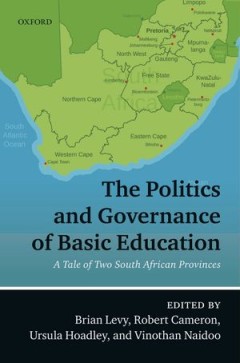
The Politics and Governance of Basic Education : A Tale of Two South African …
Uses cutting edge and multidisciplinary approaches to analyse the politics of service provision and serves as a model for how similar research can be conducted in other countries and sectors - An in-depth, microlevel analysis that develops the high-profile South African discourse on the interaction between governance and policy - Systematically anchored in innovative thinking on how to achieve …
- Edition
- -
- ISBN/ISSN
- 9780198824053
- Collation
- -
- Series Title
- -
- Call Number
- 370 POL p
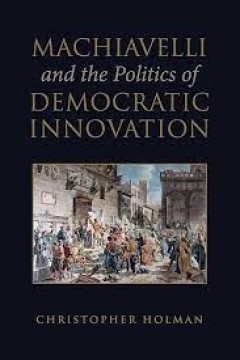
Machiavelli and the Politics of Democratic Innovation
Machiavelli and the Politics of Democratic Innovation uses original readings of Machiavelli’s texts to develop a new theoretical model of democratic practice. Christopher Holman identifies two unique ideas in Machiavelli through his rearrangement of Machiavellian concepts. The first, drawn primarily from The Prince, is an image of the individual human being as a creative subject that seeks th…
- Edition
- -
- ISBN/ISSN
- 9781487531591
- Collation
- -
- Series Title
- -
- Call Number
- -
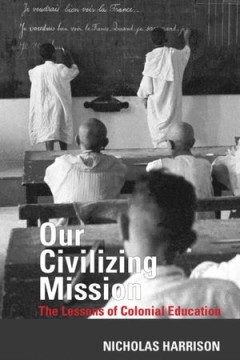
Our Civilizing Mission : The Lessons of Colonial Education
Our Civilizing Mission is at once an exploration of colonial education and a response to current anxieties about the historical and conceptual foundations of the ‘humanities’. On the one hand, it treats colonial education as a facet of colonialism. It draws on a rich body of work by ‘colonized’ writers – starting with Edward Said, then focusing on Algeria – that attests to the suffe…
- Edition
- -
- ISBN/ISSN
- 9781786941763
- Collation
- -
- Series Title
- Contemporary French and Francophone Cultures
- Call Number
- 370 HAR o
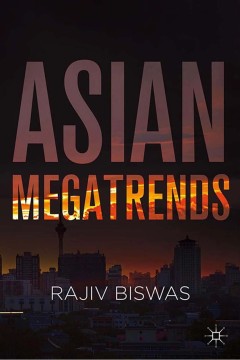
Asian Megatrends
Asian Megatrends assesses the key drivers impacting Asia over the next two decades. The rise of China is transforming the Asia-Pacific, as China’s economic and military might increasingly reverberates throughout the region. India and Indonesia are also rising Asian powers that are changing the shape of the Asian economic landscape. The rapid growth of emerging Asian consumer markets is becomi…
- Edition
- Ed. 1
- ISBN/ISSN
- 978-1-137-44189-8
- Collation
- XI, 245
- Series Title
- -
- Call Number
- 337 BIS a
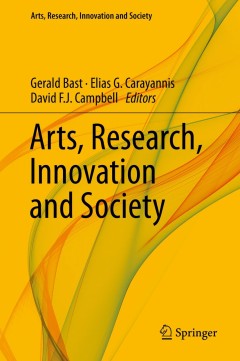
Arts, Research, Innovation and Society
This book explores – at the macro, meso and micro levels and in terms of qualitative as well as quantitative studies – theories, policies and practices about the contributions of artistic research and innovations towards defining new forms of knowledge, knowledge production, as well as knowledge diffusion, absorption and use. Artistic research, artistic innovations and arts-based innovation…
- Edition
- Ed. 1
- ISBN/ISSN
- 978-3-319-09909-5
- Collation
- X, 297
- Series Title
- Arts, Research, Innovation and Society
- Call Number
- 337 ART a

Data-Driven Policy Impact Evaluation How Access to Microdata is Transforming…
In the light of better and more detailed administrative databases, this open access book provides statistical tools for evaluating the effects of public policies advocated by governments and public institutions. Experts from academia, national statistics offices and various research centers present modern econometric methods for an efficient data-driven policy evaluation and monitoring, assess …
- Edition
- -
- ISBN/ISSN
- 978-3-319-78461-8
- Collation
- -
- Series Title
- -
- Call Number
- 320
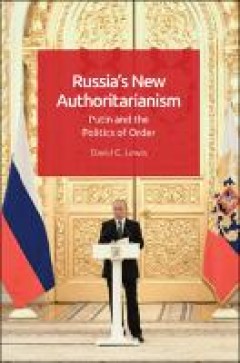
Russia's New Authoritarianism : Putin and the Politics of Order
Studies the transformation of Russian domestic politics and foreign policy under Vladimir Putin Asks what kind of political system ‘Putinism’ denotes Engages with the scholarly and policy debate on the growth of illiberal politics and authoritarianism globally in the post-Soviet space and in countries as diverse as Hungary, Egypt, Turkey and the Philippines Uses contemporary case studies �…
- Edition
- -
- ISBN/ISSN
- 9781474454780
- Collation
- -
- Series Title
- -
- Call Number
- 320
 Computer Science, Information & General Works
Computer Science, Information & General Works  Philosophy & Psychology
Philosophy & Psychology  Religion
Religion  Social Sciences
Social Sciences  Language
Language  Pure Science
Pure Science  Applied Sciences
Applied Sciences  Art & Recreation
Art & Recreation  Literature
Literature  History & Geography
History & Geography